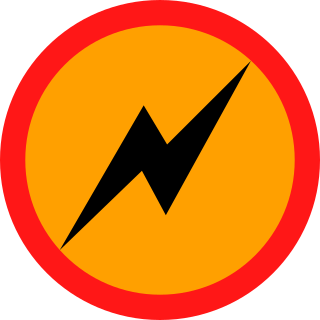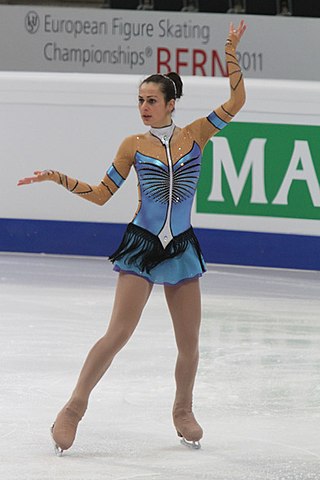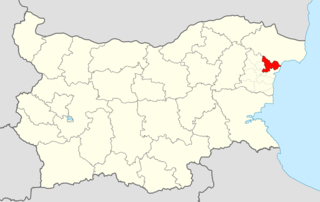In international relations, intergovernmentalism treats states as the primary actors in the integration process. Intergovernmentalist approaches claim to be able to explain both periods of radical change in the European Union because of converging governmental preferences and periods of inertia because of diverging national interests.

The Knights of Pythias is a fraternal organization and secret society founded in Washington, D.C., on February 19, 1864. The Knights of Pythias is the first fraternal organization to receive a charter under an act of the United States Congress.

The European Union Aviation Safety Agency (EASA) is an agency of the European Commission with responsibility for civil aviation safety in the European Union. It carries out certification, regulation and standardisation and also performs investigation and monitoring. It collects and analyses safety data, drafts and advises on safety legislation and co-ordinates with similar organisations in other parts of the world.

Imperium Europa is an ultranationalist political party in Malta. It was founded on 9 February 2000 by Norman Lowell, who is also its leader. Its primary aim is to unite Europe into one political entity, a "Europe of regions and peoples, stretching from the Channel, to Vladivostok, in order to save the white race.

Joseph "Yossi" Vardi is an Israeli entrepreneur and investor. He is an Israeli entrepreneur and investor, known for his involvement in the early development of Israel's high-tech sector and the Israeli internet industry. He has been involved in the founding and development of over 85 high-tech companies across various fields, including software, energy, internet, mobile, electro-optics, and water technology, over a span of more than 47 years.

The International Vegetarian Union (IVU) is an international non-profit organization whose purpose is to promote vegetarianism. The IVU was founded in 1908 in Dresden, Germany.

Although there has been a large degree of integration between European Union member states, foreign relations is still a largely intergovernmental matter, with the 27 states controlling their own relations to a large degree. However, with the Union holding more weight as a single entity, there are at times attempts to speak with one voice, notably on trade and energy matters. The High Representative of the Union for Foreign Affairs and Security Policy personifies this role.
Chris Jury is an English actor, writer and director with a range of television credits. He is best known for his role as Eric Catchpole in the BBC television series Lovejoy, which he played between 1986 and 1993, with a brief return in 1994, for the show's finale.

Amber Corwin Farrow is an American former competitive figure skater. She is the 1999 Four Continents silver medalist and 2004 bronze medalist.

Hristina Vassileva-Zhecheva is a Bulgarian figure skating coach and choreographer in USA, and former competitor. She is six time Bulgarian national champion and reached the free skate at four ISU Championships. She achieved her best result, 16th, at the 2001 European Championships.

The European Directive on Traditional Herbal Medicinal Products (THMPD), formally the Directive 2004/24/EC amending, as regards traditional herbal medicinal products, Directive 2001/83/EC on the Community code relating to medicinal products for human use, was established by the European Parliament and Council on 31 March 2004 to provide a simplified regulatory approval process for traditional herbal medicines in the European Union (EU). Previously, there was no formal EU wide authorisation procedure, so each EU member state regulated these types of products at the national level.

Roberta Metsola is a Maltese politician who has served as the president of the European Parliament since January 2022. She is a member of Malta's Nationalist Party (PN) and the European People's Party (EPP).
Shelley Sweeney is a Canadian archivist. She was university archivist at the University of Regina from 1983 to 1998, and the Head of the University of Manitoba Archives & Special Collections from 1998 to 2020. She helped found two regional archival organizations, the Saskatchewan Council of Archives and the Saskatchewan Archivists Society, and the University and Research Institutions section of the International Council on Archives. Sweeney is a charter member of the Academy of Certified Archivists and, with colleagues, wrote the first code of ethics for the Canadian archival profession.

Aksakovo Municipality is a municipality (obshtina) in Varna Province, Northeastern Bulgaria, located near the Bulgarian Black Sea Coast. It is named after its administrative centre – the town of Aksakovo.

Manol Atanassov is a Bulgarian figure skater. He is the 2012 Denkova-Staviski Cup bronze medalist and a two-time Bulgarian national champion. He competed in the final segment at the 2013 European Championships in Zagreb, Croatia.

The UK Lingerie Awards are held annually in the United Kingdom to present awards to key individuals from the British lingerie industry, including designers and retailers. The awards are organized by the lingerie industry magazine Lingerie Insight.

Matilda Algotsson is a Swedish figure skater. She is the 2017 CS Nebelhorn Trophy silver medalist, the 2015 Volvo Open Cup champion, and the 2019 Swedish national champion. She placed 13th at the 2016 and 2017 European Championships.

The Economic and Financial Committee (EFC) is a European Union advisory body, defined by the article 134 of the Treaty on the Functioning of the European Union. Its president is also the president of the Eurogroup Working Group, which prepares dossiers for approval by the Eurogroup, whose decisions are generally ratified by ECOFIN.

Larry Loupolover is an American figure skater who currently represents Bulgaria in men's singles and formerly represented Azerbaijan. He has won four senior international medals and qualified to the free skate at two European Championships.

Taiwan–European Union relations refers to the international relations between Taiwan, and the European Union (EU).














